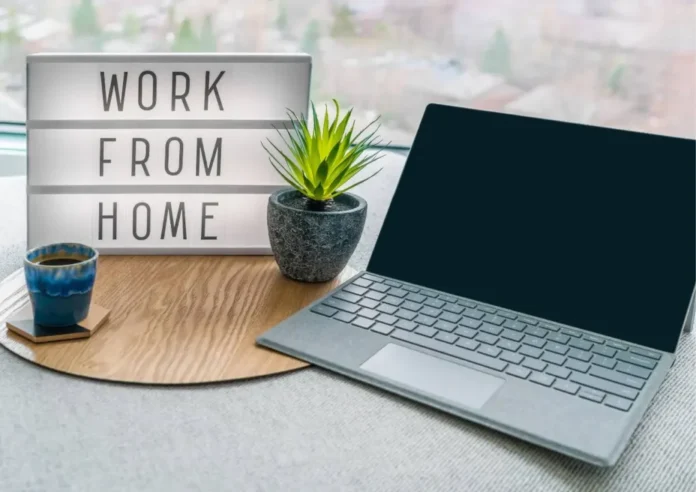在《在家工作的“该做与不该做”》一文中,资深销售专家Jeremiah Chow分享了提高远程工作效率的实用建议,帮助大家在居家办公中获得更高的生产力。 亮点Jeremiah Chow是谁?提高居家办公效率的技巧**不要:**根据心情工作**要:**遵守固定的工作时间,并与上司和同事沟通清楚**不要:**在床上工作**要:**明确工作空间管理远程销售团队的建议**要:**每天与团队成员沟通**要:**确保销售活动记录的合规性**要:**对绩效期望达成一致 Jeremiah Chow是谁? Jeremiah Chow是一位资深销售专家,拥有超过10年的国际销售与客户管理经验,专注于IT、SaaS和专业服务领域。他在APAC、北美以及UK/EMEA地区成功推动公司销售增长,帮助科技初创企业从零实现年经常性收入1000万美元的规模。2021年,他成为USAID的认证全球销售顾问,并在2020年和2021年被Marketing in Asia评为“LinkedIn值得关注和学习的100位菲律宾人”之一。在本文中,Jeremiah将分享他关于如何在家工作的实用经验。 提高居家办公效率的技巧 作为一名国际B2B销售人员,我在家工作了超过11年,覆盖北美、欧洲和亚太地区。我发现,如果不遵循固定的日常作息安排,或者连续工作超过90分钟,我的生产力就会下降。为此,我建议进行60-90分钟的“深度专注工作”,期间避免所有干扰(例如关闭通知),然后安排10分钟的休息时间。不管是喝水、做轻微的拉伸运动,还是吃点小零食,都可以帮助你为接下来的工作时段恢复精力。 经过反复试验,我发现如果不遵守核心作息或不休息,很容易感到倦怠,这种疲惫更多的是心理上的而非身体上的。当这种情况发生时,可以通过做自己喜欢的事或与朋友面对面交流来“重启”状态。 以下是我个人总结的在家办公的最佳实践: **不要:**根据心情工作 例如:今天8点到下午5点工作,明天中午12点到晚上9点工作,后天上午10点到晚上7点工作,只是因为早上想和朋友聚会。 **要:**遵守固定的工作时间,并与上司和同事沟通清楚 如果因个人紧急情况偏离了核心工作时间,要提前告知同事,避免让人觉得你在“摸鱼”。 例如,我在国际B2B销售岗位时的核心工作时间如下: 早上6点到10点——覆盖美国西部时间(PST) 下午2点到7点——覆盖欧洲 晚上8点到10点——覆盖美国东部时间(EST) 其他时间安排: 上午10点到下午2点——健身、与朋友吃午餐、处理个人事务。如果没有其他安排,则准备客户名单。晚上7点到8点——吃晚饭,与家人相处。 额外建议: 在家和朋友之间管理好预期 向家人(例如配偶)解释,当你在工作时,真的在工作,不能随意跑腿或办事。告诉他们你的核心工作时间,让他们清楚你的灵活性。 例如,我的朋友有时在晚饭后邀请我打篮球(这会冲突我的核心时间)。这种情况下,我会提前告知上司和同事,然后调整工作时间,比如篮球赛是晚上8点到10点,回家后我会从晚上11点工作到凌晨1点。这样,我还能在当晚多挖掘一些美国公司的客户资源。 锻炼身体 即使每天只有30分钟,也要安排锻炼时间。锻炼不仅可以让你更有活力,还会让你整体感觉更好。 **不要:**在床上工作 整天待在床上看似舒适,实际上会让人工作时间过长而难以持续。 **要:**明确工作空间 定义一个固定的工作区域,即使是卧室里的书桌也可以。一旦进入这个“空间”,你就是“在工作”。 额外建议: 视频会议时,穿着专业的上衣,即使下半身是睡裤也无妨。 投资第二块显示器:扩展桌面空间,例如一个显示器用于销售CRM,另一个用于邮件和网页浏览。 购买高品质耳机:优质无线耳机能极大提升音质、舒适性和灵活性,例如在电话会议时可以自由走动。 **不要:**被社交媒体干扰 “休息5分钟刷一下社交媒体”常常变成浪费20分钟,任务的专注力也会丧失。 **要:**关闭社交媒体通知 如果需要查看社交媒体,请在日程表中安排时间并严格遵守。. 附加技巧 如果你收到大量邮件,可以关闭声音通知。专注于高价值的销售活动,而不是被可能不重要的通知打扰。 总结: 不要: 根据心情工作 在床上工作 被社交媒体干扰 要: 遵守固定作息 明确工作空间 关闭社交媒体通知 管理远程销售团队的建议 **要:**每天与团队成员沟通…









